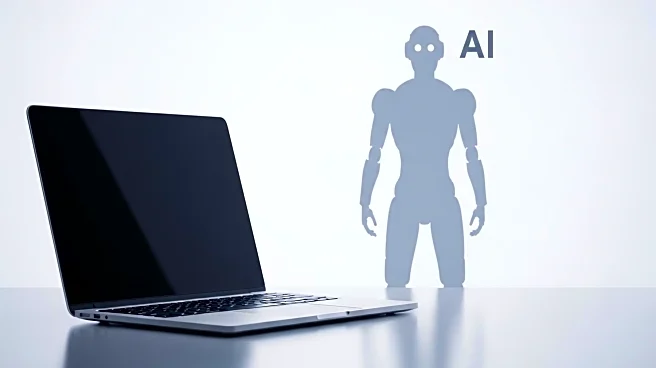What's Happening?
The U.S. technology job market has experienced a significant decline, with job postings dropping by 34 percent since 2020. This downturn follows a period of increased demand during the pandemic and a surge in venture capital investments, which have since cooled due to macroeconomic conditions and the rise of generative AI. While senior roles have been less impacted, entry-level positions have seen larger reductions. In contrast, there is a growing demand for AI-related roles such as machine learning engineers and data engineers, indicating a shift in the tech labor market. This trend is not isolated to the U.S., as Canadian tech job postings have also decreased by 19 percent, suggesting global influences are affecting the industry.
Why It's Important?
The decline in tech job postings in the U.S. reflects broader economic challenges and the transformative impact of AI on the labor market. As companies increasingly adopt AI technologies, the demand for traditional tech roles may decrease, while specialized AI positions become more sought after. This shift could lead to a reallocation of resources within the tech industry, affecting employment patterns and potentially leading to job displacement for those in non-AI roles. The trend also highlights the need for workers to adapt and acquire new skills to remain competitive in a changing job market. Additionally, the cooling of venture capital investments may impact startups and innovation within the sector.
What's Next?
As the demand for AI-related roles continues to grow, educational institutions and training programs may need to adjust their curricula to better prepare students for these emerging opportunities. Companies might also invest in reskilling and upskilling their workforce to meet the evolving demands of the industry. Policymakers could consider initiatives to support workers transitioning to new roles and address potential job displacement. The tech industry may see further consolidation as firms adapt to economic pressures and technological advancements.
Beyond the Headlines
The shift towards AI-driven roles raises ethical and cultural questions about the future of work and the balance between human and machine labor. As AI becomes more integrated into business operations, concerns about privacy, data security, and the ethical use of technology may become more pronounced. The long-term impact on societal structures and employment norms could lead to significant changes in how work is perceived and valued.










